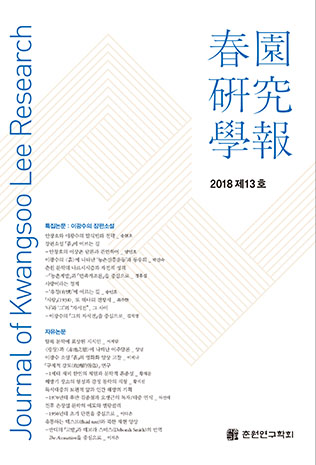주제분류
Best논문
매거진(잡지)
저널∙발행기관
논문작성TIP
투고저널추천
크롬 서지관리 다운로드정기구독(개인)
소속 기관이 없으신 경우, 개인 정기구독을 하시면 저렴하게
논문을 무제한 열람 이용할 수 있어요.
회원혜택
로그인 회원이 가져갈 수 있는 혜택들을 확인하고 이용하세요.
아카루트
학술연구/단체지원/교육 등 연구자 활동을 지속하도록 DBpia가 지원하고 있어요.
영문교정
영문 논문 작성에 도움을 드리기 위해, 영문 교정 서비스를
지원하고 있어요.








